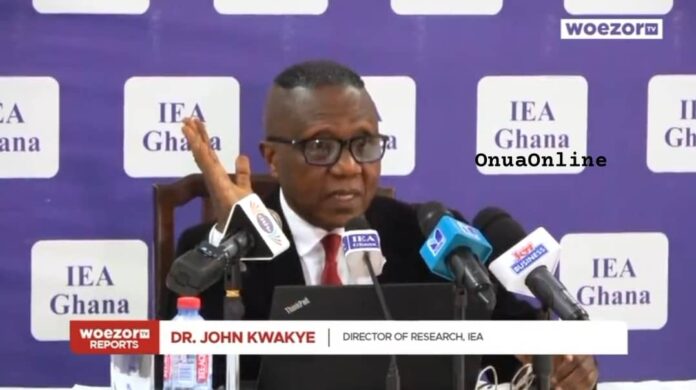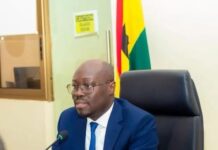The Director of Research at the Institute of Economic Affairs (IEA), Dr John Kwakye, has provided tips on how to avoid future bailouts from the International Monetary Fund (IMF).
He suggests that Ghana must take ownership of its natural resource wealth and manage it judiciously.
This would ensure that the needed revenue to develop the country is generated, he said.
“The way for Ghana to avoid future IMF bailouts is to take ownership of its natural resource wealth and manage it judiciously,” Dr Kwakye wrote on his X page.
He stressed “The only way Ghana can avoid its dependence on foreign largesse is to take ownership of its vast natural resource wealth. And the time to do this is now! Not taking ownership of Ghana’s vast natural resource wealth for the development of the country is no longer an option!
“Can you imagine that Ghana has: gold, diamonds, manganese, bauxite, lithium, uranium, copper, cobalt, nickel, silicate, iron ore, salt, oil, gas, etc. worth trillions of dollars? So, how can our “poverty” not be self-inflicted?”

Dr Kwakye’s comments come at a time when the Minister for Finance, Dr Cassiel Ato Forson, clarified that the recent increases in electricity and water tariffs are part of Ghana’s obligations under its ongoing program with the International Monetary Fund (IMF).
His comments come in the wake of the Public Utilities Regulatory Commission’s (PURC) announcement of a 14.75% increase in electricity tariffs and a 4.02% rise in water charges, both set to take effect on May 3, 2025.
Dr Ato Forson, speaking at a press conference in Accra on Tuesday, April 15, 2025 explained that the tariff adjustments were a requirement for Ghana to access the next $370 million tranche under the IMF deal.
“We have begun the implementation, which you recently saw, the quarterly adjustment by PURC, which was supposed to have been done by last year. But we have ensured that it has been done in line with the statutory benchmark as agreed in the third review,” he explained.
Dr Ato Forson also responded to growing speculation about a possible renegotiation of Ghana’s agreement with the IMF, making it clear that the government has no intention of revisiting the terms.
“Renegotiating presupposes that you don’t believe in the program, and so you want to open up the conversation to look at other parameters of the program. That isn’t the position of the government. The government is committed to the implementation to achieve the objectives of the IMF program,” he said.
The finance minister further acknowledged that although some structural benchmarks and quantitative targets were missed prior to the current administration taking office, the government remains focused on meeting the program’s goals moving forward.













